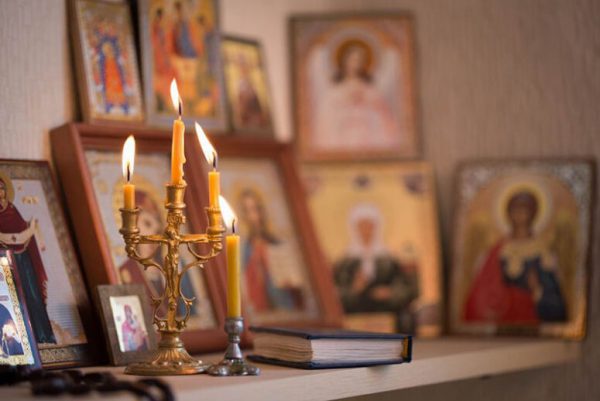I feel like I'm writing a lot about authenticity, and to a great extent that's because I'm still gathering my thoughts on several trends I've observed in the Church. I saw an older (several years ago) discussion online yesterday that I thought hit the nail on the head regarding some of the issues that have concerned me of late. The issue was what I have termed "monastic fetishism," and what others have observed as laity seeking a monastic type of life while not being monastics.
There is a sense in which this is perfectly healthy and not at all a concern. Without more, wanting a fuller service schedule, wanting to live near a monastery to have access to such a service schedule, wanting a deeper spiritual life, greater asceticism, etc., are all good and worthy goals. Burnout is real, and I do fear too many young Orthodox converts try to do too much too fast. But absent other motivations, it is well and good to enter as deeply into the life of the Church as one is able, and certainly the fullest expression of the liturgical life of the Church is found in monasteries. Being close to a monastery, or visiting one as a retreat, or adopting some of the prayer life and liturgical life of monastics, is generally a good thing, and ought to be encouraged.
But there seems to me to be a secondary motivation that sometimes enters the picture. In America, we do not have a well-formed spirituality that is common to the people. We see this reflected in faddish pop-Christianity in such things as the Prayer of Jabez book and 40 Days of Purpose and so forth. American Christians without access to the full treasury of the Church tend to grasp for meaning. We do not take Holy Week off of work. Stores don't close on feast days. We are not, obviously, an Orthodox society, culturally speaking. And so we seek out deeper spiritual meaning because our culture is so utterly banal and spiritually impoverished.
This temptation to attempt a deeper spiritual life within a culture that doesn't really make room for it is worsened, it seems to me, when laypeople want to live as monastics, without taking the monastic tonsure and without entering into that life fully and completely. That is, the danger is not wishing for a fuller spiritual life, but putting on the dressings of a fuller spiritual life without actually doing the work. It is, as the person in the discussion I referenced above called it, "Orthodox LARPing." Instead of actually living out the Orthodox life in humility and reverence where God has placed us (in the world), the temptation is to play dress-up and attempt to monasticize our little portion of the world because we think it makes us more holy. And as I note above and have noted a lot of late, the problem with this is it is inauthentic. Which is not to say it is utterly inauthentic. Certainly people who attempt to live this way have good intentions and deeply desire holiness. It is only to say that without taking the tonsure and entering into the life of a monk or nun, it is not fully authentic. There is some degree of self-deception involved. And the problem with that is it tempts us to think we are holier simply by putting on the appearance of monasticism, when in fact, holiness for laypeople is more often found in service to those around us, loving, forgiving, and carrying the very same holiness that monks aspire to into the world and using it to serve Christ through our neighbor in the most mundane of ways.
A former priest once told me "everyone wants to go to the chanter stand or the choir or serve on a committee before the chrism is even dry, but nobody ever wants the 'ministry' of taking out the trash or cleaning the toilets." That same priest's son-in-law did those chores, faithfully, and literally for decades. Most people never noticed, but things just got done and everyone sort of assumed it was someone's responsibility and it always got taken care of. There is no glory in such a role in the eyes of men. But there is much glory in God's eyes in simply serving the Church in such fashion, neither seeking recognition nor puffing one's self up over it.
It is obviously a great thing if those things are done while saying the Jesus Prayer or after having done 30 prostrations during morning prayers or while attending every service every time the Church doors are open and while wearing a cassock and serving in the Church. But it is no less a good work and no less spiritual to do them wearing khakis and still having dirt on one's hands from working in the yard or coming home from a hard day's work.

